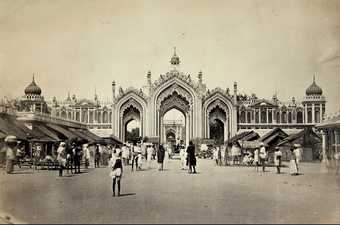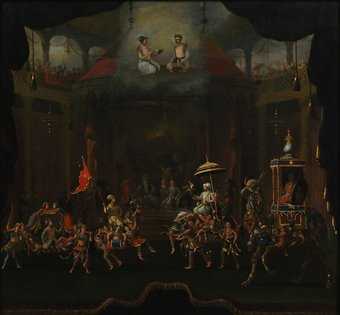The real voyage of discovery consists not in seeking new landscapes, but in having new eyes.
Marcel Proust.
South Asia and Wales have had a long liaison, stretching back to the earliest years of Britain's socio-political infiltration of the Subcontinent. And, given Wales' own status within the larger British narrative, the encounters have often been more collaborative (and the two have shared more in common) than the history of Colonialism would lead one to assume.
The seminars are paired as Week 1 and Week 2 and will be delivered on Tuesday and Thursday each week. You can find further details of both weeks on Eventbrite; free tickets are now sold out so please email britishartnetwork@tate.org.uk to be added to the waiting list.
Seminar One: Exploring Colonial Conversations
12 May 2020, 14.00–16.30
This seminar will bring together visual artists from India and Wales, whose multi-media work explores themes of identity, migration, colonialisation and collaboration; paying particular attention to Swansea’s status as the second city of Sanctuary.
Seminar Two: Miniatures and The West
14 May 2020, 14.00–16.00
This event includes curators, art historians and artists who will discuss the two-way traffic between painting in the Mughal courts and European styles.
While modern and contemporary South Asian art is often accused of being ‘derivative’ – a narrative that is only now being challenged – little mention is made in academic circles of how South Asian art might have impacted European painting.
If this event seeks to fill this gap in historical scholarship, it also aims to highlight that the interaction between British and South Asian art is not a thing of the past: the miniature-inflected work of Cambridge-based Jethro Buck and Elisabeth Deane, who studied under master miniaturists in India, are a case in point.
Imperial Subjects Online Seminar Series
The seminar series Imperial Subjects is led by British Art Network bursary awardee Glynn Vivian Art Gallery and South Asian art historian Dr Zehra Jumabhoy. This series has been adapted for delivery online.
This series is funded by and forms part of the programme of the British Art Network. The British Art Network is led and supported by Tate and the Paul Mellon Centre for Studies in British Art, with additional public funding provided by the National Lottery through Arts Council England.


